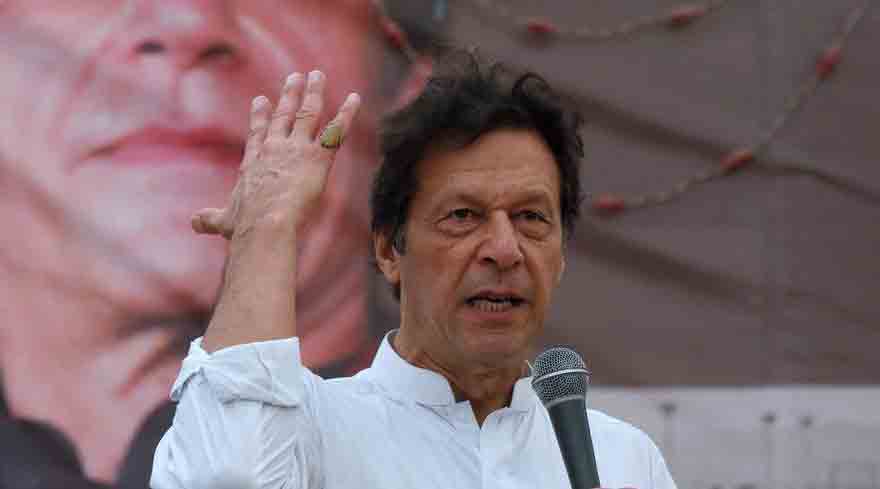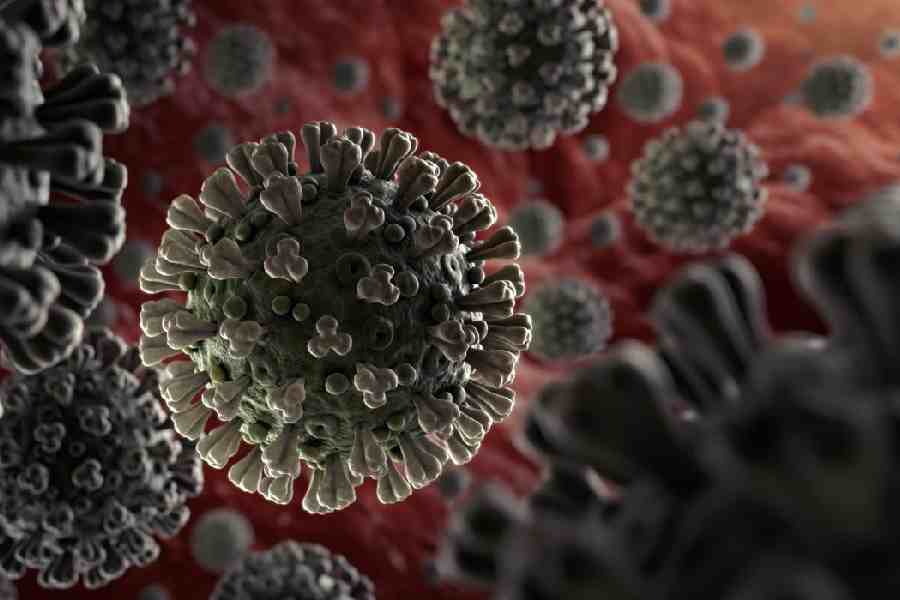Pakistan Muslim League-Nawaz (PML-N) president Shehbaz Sharif on Sunday nominated himself for the post of prime minister after the unceremonious ouster of Imran Khan, who has called on his supporters to join him on the street in protest against what he called the "imported government."
The process of electing the new leader of the house began on Sunday after Khan was removed from office through a no-confidence vote, becoming the first premier in the country's history to be sent home after losing the trust of the House.
The joint Opposition - a rainbow of socialist, liberal and radically religious parties - has nominated 70-year-old Shehbaz for the premier's post while ex-foreign minister Shah Mahmood Qureshi was named by Khan's Pakistan Tehreek-e-Insaf (PTI) as its candidate.
Khan's successor will be elected in the National Assembly on Monday and a special session has been summoned. In the house of 342, the winner would need 172 votes to become the new prime minister.
Shehbaz is likely to be elected the new leader of the house.
However, it will be a real challenge for him to shepherd the motley herd that also includes four independent candidates and allow Parliament to complete its five-year term that will end in August next year.
Before filing nomination, Shehbaz offered "special thanks" to those who stood up "for the Constitution!"
"I don't want to go back to the bitterness of the past. We want to forget them and move forward. We will not take revenge or do injustice; we will not send people to jail for no reason, law and justice will take its course," he said while addressing the National Assembly early Sunday.
Ex-president and Pakistan Peoples Party (PPP) co-chair Asif Ali Zaradri had proposed Shehbaz's name for prime minister in a joint opposition's meeting.
Zardari's son Bilawal Bhutto is likely to be appointed as the new foreign minister.
According to media reports, in the run up to the no-trust vote, Khan made a botched attempt to replace Army chief Gen Qamar Javed Bajwa in order to bring someone more pliant and sympathetic to his idea of foreign conspiracy and cling on to power.
BBC Urdu reported that a helicopter carrying two uninvited guests landed in the PM House on Saturday night and they met alone for 45 minutes with Khan.
No details were provided about the meeting but it was not held in a cordial atmosphere, it said.
"The Prime Minister had issued orders an hour ago to remove one of the high officials who came to meet him. So the uninvited arrival of these guests was unexpected for the Prime Minister. Khan was waiting for a helicopter but those arriving on the helicopter were against his estimate and expectations, it said.
It further added that Khan was expecting that the helicopter would bring his newly appointed official whose arrival would put down all political disturbance.
However, the attempted effort for a change failed as the defence ministry did not issue the necessary notification for the new appointment.
The BBC did not identify the uninvited guest but the choice of words, tenor and tone of the report unmistakably show that they could be Gen Bajwa and ISI chief Lt Gen Nadeem Ahmed Anjum.
The army's media wing Inter-Services Public Relations rejected the BBC Urdu article and termed it as "totally baseless and a pack of lies".
Pakistan has struggled with political instability since its formation in 1947 with multiple regime changes and military coups. No prime minister has ever completed a full five-year term.
Khan, however, told a group of his favourite journalists that there was no truth in the rumour that he was trying to replace the Army chief.
Khan apparently lost support of the powerful Army after he refused to endorse the appointment of the ISI spy agency chief last year. Finally he agreed but it soured his ties with the army, which has hitherto wielded considerable power in the matters of security and foreign policy.
Gen Bajwa last week appeared to distance himself from Khan's anti-US stance and said Pakistan wants good relations with Washington, its largest export trading partner and with China, Islamabad's all-weather ally.
Khan has been claiming that the Opposition's no-trust motion against him was the result of a foreign conspiracy because of his independent foreign policy. He has named the US as the country behind the conspiracy, a charge denied by Washington.
Khan, who came to power in 2018 with promises to create a Naya Pakistan', was dogged by claims of economic mismanagement and his government battled depleting foreign exchange reserves and double-digit inflation.
Khan will chair a meeting of the party's core committee to announce the future course of action.
"Pakistan became an independent state in 1947; but the freedom struggle begins again today against a foreign conspiracy of regime change. It is always the people of the country who defend their sovereignty & democracy," Khan tweeted in his first comments since ouster.
He is expected to address his supporters here later this evening.
On Friday, Khan had said that he will not accept an "imported government".
Meanwhile, a petition has been filed in the Islamabad High Court seeking to prevent Khan and his former ministers from leaving the country. The court will hear the petition on Monday.
The Federal Investigation Agency has put its immigration staff at all international airports on high alert with a directive to stop any official linked to the Khan regime from travelling abroad without a No-Objection Certificate.










